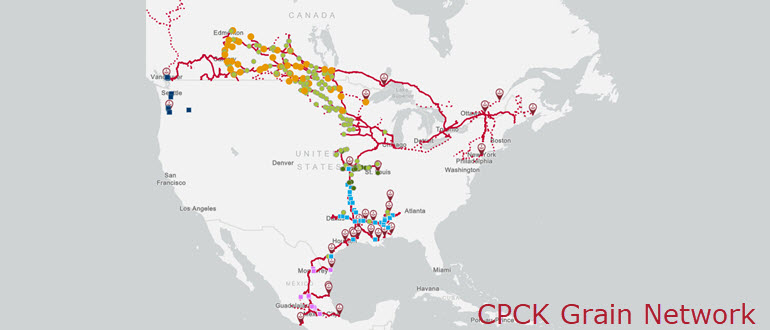
The potential national rail strike poses a significant threat to agriculture operations, particularly wheat. The railways are an essential lifeline for moving agriculture products to market, and any disruption can have devastating consequences not only for our livelihoods but also for the food security of Canadians. With the memory of recent strikes at key ports, a rail strike could seriously damage our international reputation as a reliable supplier.
The Wheat Growers Association recently shared their concerns about the strike as well as the advocacy and action they have taken in regards to the threat of a rail strike.
“A rail strike now would stall the movement of essential inputs and equipment needed for farming operations, severely impact the shipping of grains to ports, and put our supply chain in jeopardy, says Gunter Jochum, President, Wheat Growers Association. “With no viable transportation alternatives for the bulk volumes we handle, the agriculture industry faces immediate and long-lasting economic impacts.”
The Wheat Growers Association has written two letters to the Minister of Labour, Hon. Seamus O’Regan, urging the preparation of back-to-work legislation. This measure would incentivize an agreement between the railways and the union, ensuring the continued movement of goods crucial for the agriculture industry.
The Wheat Growers Association has highlighted the essential nature of uninterrupted rail service for food production and security with a submission to the Canadian Industrial Relations Board (CIRB). The submission from the wheat growers underscores the critical need for solutions ranging from essential service designation to binding arbitration to prevent any work stoppages. The Canada Industrial Relations Board invited affected groups or organizations to file submissions by May 21. No updates have been posted on the CIRB website regarding the rail strike since that time.
A legal strike or lockout cannot occur until the CIRB renders a decision. Notice (72 hours) pursuant to the Canada Labour Code is required before any legal strike or lockout could begin.
Many experts believe the Teamsters Canada Rail Conference (TCRC) members of the Canadian Pacific Kansas City Railway (CPKC) and Canadian National Railway (CN) strike will take place in the fall to disrupt harvest. Other experts believe the strike could happen sooner to disrupt the transportation of critical supplies such as fertilizers and grains during this planting season.

